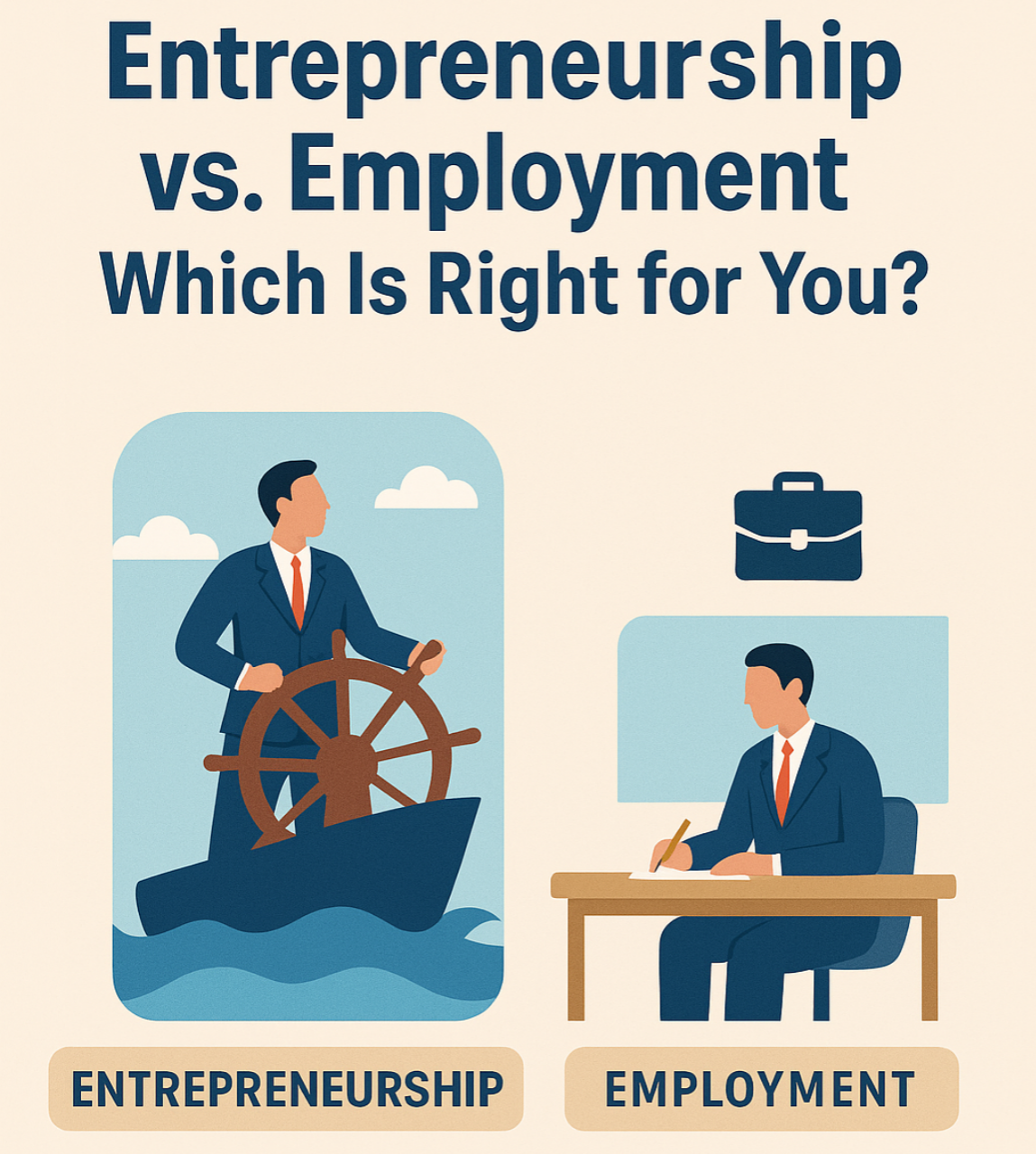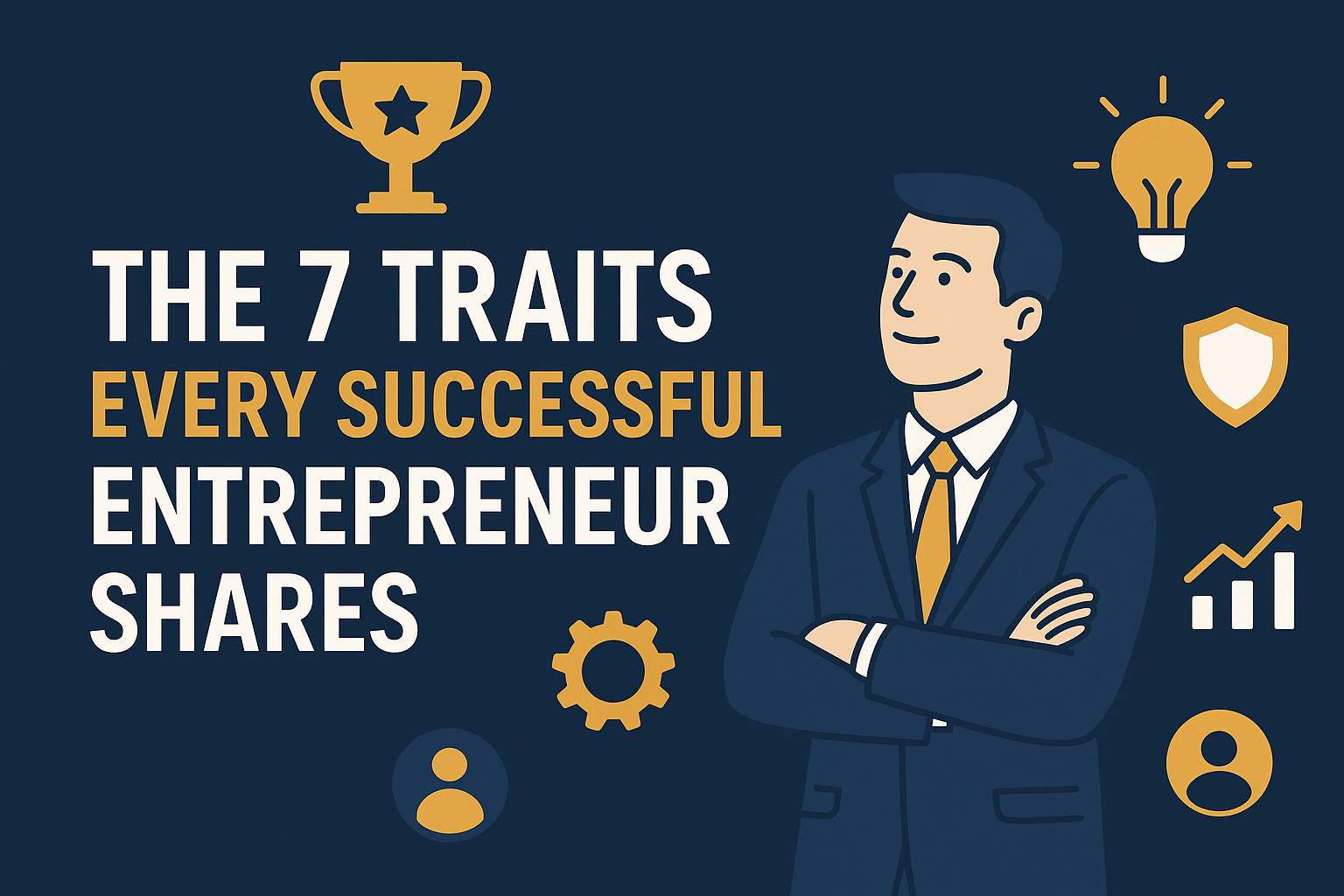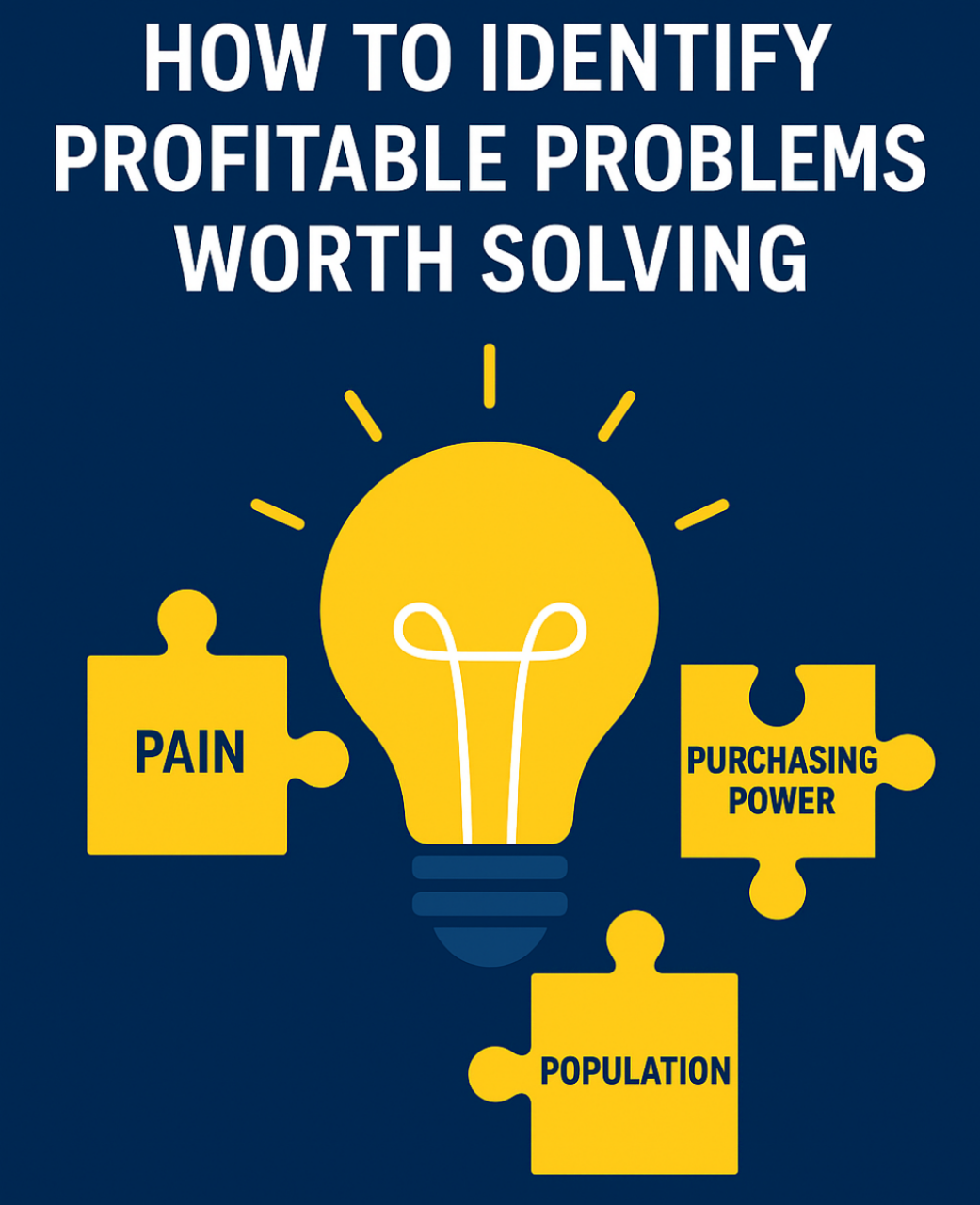Have you ever wondered if you were born to build your own business or to excel in a great company as an employee?
This question has shaped the lives, careers, and destinies of millions of people — and the truth is, neither path is “better”. The right one depends on who you are, how you think, and what you want from life.
In this guide, we’ll break down the real differences between entrepreneurship and employment, using simple analogies, real-world logic, and 20+ years of business experience to help you decide which path best fits you.

🧩 Understanding the Core Difference
Let’s imagine life as an ocean.
- An entrepreneur builds their own ship — they design it, fund it, and steer it through calm and stormy waters alike.
- An employee chooses to board an existing ship — one that’s already built, stable, and heading in a specific direction.
Both reach destinations, but the journey, responsibilities, and rewards differ greatly.
🚀 What Is Entrepreneurship (in Simple Terms)?
Entrepreneurship means creating value from ideas — building something that solves problems and earns income.
You might start small — a fashion brand, a tech startup, a food delivery business — but as an entrepreneur, you own the vision, take the risks, and reap the rewards if it succeeds.
🧠 Think of It Like This:
Being an entrepreneur is like planting a seed.
You water it, nurture it, and wait months or even years before it grows into a fruit-bearing tree. But once it does, it can feed many people — and create other trees (businesses) too.
Key Traits of Entrepreneurs:
- Visionary Thinking: They see opportunities where others see obstacles.
- Risk Tolerance: They can handle uncertainty and failure.
- Self-Motivation: No one tells them when to start or stop — they drive themselves.
- Creativity: They constantly think, “What’s a better way to do this?”
- Leadership: They must guide people toward a shared goal.
💼 What Is Employment (in Simple Terms)?
Employment means using your skills to help someone else’s vision succeed, in exchange for a salary, benefits, and job security.
You may be a manager, accountant, teacher, or technician — but you’re part of a system that’s already built. You’re paid for the value you add to that system.
🧠 Think of It Like This:
Being an employee is like joining a football team.
You play a specific role (defense, midfield, or striker), and the coach (the employer) provides the strategy, resources, and goals. You succeed when the team wins.
Key Traits of Employees:
- Dependability: They follow through on tasks consistently.
- Skill Mastery: They become experts in specific roles.
- Structure-Oriented: They like routine, rules, and clarity.
- Teamwork: They thrive in collaborative environments.
- Stability Seeking: They value predictability and steady income.
⚖️ Entrepreneurship vs. Employment — A Side-by-Side Comparison
| Factor | Entrepreneurship | Employment |
|---|---|---|
| Risk | High (you might fail, lose money) | Low (steady salary, job security) |
| Control | Full control over decisions | Limited, you follow company policy |
| Income | Unlimited potential | Fixed, but consistent |
| Work Hours | Often long, irregular | Usually structured (9–5) |
| Skills Needed | Leadership, creativity, problem-solving | Technical, professional, teamwork |
| Rewards | Freedom, legacy, financial growth | Stability, career growth, benefits |
| Responsibility | You’re accountable for everything | Shared responsibility with the company |
🔍 How to Know Which Path Is Right for You
Let’s walk through a few simple questions to help you discover where you fit best.
1. Do You Prefer Security or Freedom?
- If you value security, steady pay, and clear structure, employment is your lane.
- If you crave freedom, control, and adventure, entrepreneurship might be calling you.
2. How Do You Handle Uncertainty?
Entrepreneurs wake up some days not knowing how they’ll make money — but they keep going.
Employees prefer predictable environments with clear expectations.
3. What Motivates You?
- If you’re motivated by personal growth, challenge, and building something lasting, go entrepreneurial.
- If you’re motivated by achievement, recognition, and progression in a system, employment fits perfectly.
4. Can You Handle Failure?
Entrepreneurs fail often — but they learn and pivot.
Employees can fail too, but within safer boundaries, and they often have guidance to bounce back.
💬 Real-Life Analogy: The Two Farmers
Imagine two farmers — John and Mary.
- John owns his land. He decides what crops to plant, when to harvest, and how to market them. It’s risky — if there’s a drought, he suffers — but when the harvest is good, he reaps all the profits.
- Mary, on the other hand, works on a large farm owned by a company. She gets a monthly salary, health insurance, and paid holidays. She doesn’t worry about losses — but she also doesn’t get the big profits John gets.
Both are farmers, but they live very different financial lives.
💡 Here’s the Truth: You Can Be Both
You don’t always have to choose one forever.
Many people start as employees, learn the ropes, save money, and then transition into entrepreneurship.
Others build businesses but later take executive roles in established companies.
👉 The key is self-awareness — understanding where you are now and what kind of life you want to build.
🔥 My 20-Year Takeaway
After over two decades of working with entrepreneurs, investors, and professionals, here’s what I’ve learned:
Entrepreneurship isn’t for everyone — but everyone should think like an entrepreneur.
Even as an employee, adopting an entrepreneurial mindset (initiative, problem-solving, ownership) makes you stand out.
And as an entrepreneur, hiring employees with that mindset makes your business thrive.
So whether you’re building your own company or climbing the corporate ladder — success comes from the same core:
➡️ Ownership, Growth, and Value Creation.
🏁 Final Thoughts
Choosing between entrepreneurship and employment isn’t about pride — it’s about purpose.
Ask yourself:
“What do I really want — freedom or stability? Creation or contribution?”
Once you know your answer, you can build your path with confidence.
Because both roads — if walked with passion and excellence — lead to success.
See Also:


